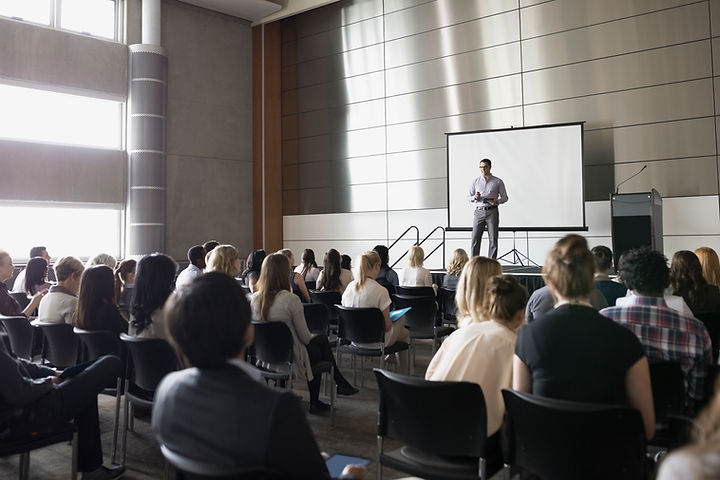The Legal Life of a Cooperative
We are thrilled to announce the details of our 2nd Biennial Cooperative Law Conference: The Legal Life of a Cooperative.
This year, our regional conference will bring national and regional experts to discuss the tools needed to advance the growth of a resilient, just, and local economy, from organizing through developing a successful coop.
Take advantage of the chance to get inspired by some truly talented individuals. Book your ticket today to make sure your spot is reserved!

This day-long event will feature:
-
Basic and advanced sessions on cooperative formation and their legal structures, cooperative conversion as succession planning strategy, and funding and financing models.
-
Discussions about challenges and managing expectations between the various actors in the cooperative development process.
-
Q&A with experts and up to 5 OH CLE credits, professional responsibility included (5h of CLE credit have been requested with the Sup. Ct. of Ohio and pending approval).
Who should attend? This is a regional event with a focus on Ohio Law. Legal aid attorneys, co-op practitioners, private attorneys interested in collaborating with co-op advocates, accountants, cooperative worker-owners, business brokers, social investors, lending institutions, and other technical assistance providers seeking to better understand the workings of multi-stakeholder cooperatives. Advocates and cooperators from the bordering states are encouraged to register.
This experience will show how these professionals can spark the movement to empower community-based initiatives to be the drivers of change through cooperatives and social enterprises while building a regional network of practitioners.


Our Schedule
Don’t Miss Out
8:30 AM
Opening Remarks
8:40AM - 9:40AM
Worker-Owned Coops 101
Speaker: Camille Kerr, esq.
-
Values, vision, mission, goals, and strategies
-
Cooperative principles and their legal implications
-
Rights and responsibilities of co-op membership
Speaker: Deborah Olson, esq.
-
Common legal structures and tax implications
-
Overview of common transactions and basic legal documents
9:40AM - 11AM
Simultaneous Session: Start-up Track
How to get started?
Speakers: Matt Currie, esq., Eric Britton, esq.
This session will explore the following topics: organizing, planning, incubation and development timeline, legal documents, pro bono collaboration, community leadership, engagement and education, creating effective development team.
9:40AM - 11AM
Simultaneous Session: Conversion Track
Cooperative Conversion – Intro, timeliness & Process, Readiness Planning & Exploration
Speakers: Camille Kerr, esq., Deborah Olson, esq.
This session will explore the following topics: why plan, succession planning, benefits, what’s employee ownership, benefits of employee ownership. Conversion process & timeline, legal documents and financials, leadership development and employee education.
11:05AM - 11:35AM
Panel
Local and Regional Cooperative development – how did you do it?
Moderator: Aisha Sleiman, esq.
Panel: Lela Klein, esq., Co-op Dayton Executive Director, Kristen Barker, Co-op Cincy Executive Director
11:35AM - 12PM
Networking Groups
Enjoy this opportunity to chat with the experts in the room
12PM - 1:15PM
Lunch Break
1:15PM - 2:00PM
Capital raising: Overview of traditional and new funding streams
Speaker: Sarah Kaplan, esq.
This session will give an overview of funding streams for cooperative development and common legal documents used to facilitate charitable gifts and grants, program related investment, New Markets Tax Credits, Direct Public Offering, Opportunity Funds, SBA loans, and an introduction to alternative equity models.
2:05PM - 2:55PM
Capital Raising: Securities & Employee-owner capital, outside and equity financing
Speaker: Camille Kerr, esq.
This session will explore the intricacies of security registrations, exemptions, aspects of common and alternative equity models in cooperative development.
3PM - 3:30PM
Implications of capital raising on governance, board formation, and democratic management
Speakers: Camille Kerr, esq.
This session will explore the impacts of capital stack (financing, employee-owner capital, outside financing, supporter share) on board formation and democratic governance.
3:30PM - 4:15PM
Q&A Panel
Moderator: Eric Britton
Panel: Lela Klein, Camille Kerr, Brandon E. Dobbyns
4:25PM - 5:25PM
Professional Responsibility
Legal ethics and transactional legal services: joint representation, board participation, and other common issues
Speaker: John Ruffolo, esq.
The purpose of this presentation is to help clarify the responsibility of representing unincorporated community groups, representing sister organizations, and understanding potential issues resulting from attorney representation and service in nonprofit board.

Our Speakers
Get to Know Them
Supporters
Committed to Community Resiliency
Sustainable Economies Law Center cultivates a new legal landscape that supports community resilience and grassroots economic empowerment. We provide essential legal tools - education, research, advice, and advocacy - so communities everywhere can develop their own sustainable sources of food, housing, energy, jobs, and other vital aspects of a thriving community.
The College of Food, Agricultural, and Environmental Sciences Center for Cooperatives comprehensively integrates the teaching, research and Extension programs of the College. The Center creates and extends knowledge to emerging and existing cooperatives in Ohio and beyond.

Alliance of Ohio Legal Aids
The Alliance of Ohio Legal Aids is a membership consortium of Ohio legal aid organizations. As part of the Alliance, the Ohio Training Advisory Committee (OTAC) provides training coordination and support to staff at Ohio legal aid programs

Legal Aid of Western Ohio, Inc. (LAWO) is a non-profit regional law firm that provides high quality legal assistance in civil matters to help eligible low-income individuals and groups in western Ohio achieve self reliance, and equal justice and economic opportunity.

The Ohio Access to Justice Foundation is committed to improving access to justice and ensuring that legal aid societies and other resources, programs, and services address the unmet civil legal needs of low-income and under-served Ohioans. Neighborhood Stabilization grants are supported by the Foundation in an effort to promote and grow community economic development throughout Ohio.
















